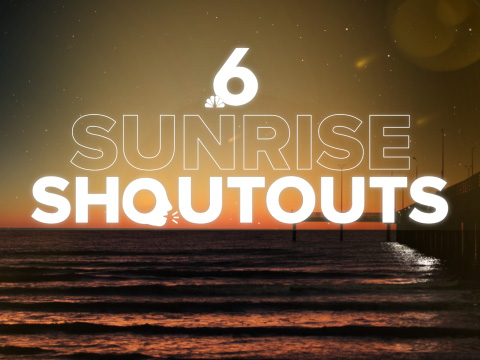CORPUS CHRISIT, Texas — The 43rd Annual Oysterfest is back serving up all types of food, but showcasing the oyster.
On the menu at this year's Oysterfest you'll be able to enjoy fried oysters and raw oysters, just about any way you can imagine.
READ MORE: See what else is happening this weekend.
Some were harvested in the Coastal Bend, but organizers of the Oysterfest said there is a lack of what they call market sized oysters, which are oysters larger than three inches.
“We do have the challenge of them closing the season a little bit earlier. So, you'll be getting a combination of Aransas Bay oysters and Louisiana oysters," said Vice President of the Oysterfest Committee, Russel Cole.
According to the Texas Parks and Wildlife, the season for commercial harvesting runs from November through April. The season closed early this year due to overharvesting.
"We have a supplier who stays on top of that. In fact, he just texted me that the oysters are here," Cole said.
That supplier, Alby's Seafood, is a local restaurant that has experience is commercial harvesting.
"Most of them are coming from the bay. Right here, behind me in Aransas Bay," said Cole.
Cole said Alby's Seafood gathered oysters during the open season and got more from the waters of Louisiana.
Jennifer Pollack, the Chair for Coastal Conservation and Restoration at the Harte Research Institute said there's an opportunity to buy oysters from other states.
That’s something being done more often in the Coastal Bend.
"We have a situation where there aren't enough market size oysters on the reefs in our areas to continue allowing commercial harvesting," Pollack said.
Pollack said commercial harvesting is happening in our waters, including Aransas and Copono Bay, all the way up to Galveston’s bay.
"When we harvest, we collect the oysters and their shells. So, you end with a complicated balance of being able to support commercial harvest without letting too much of the reef be collected," she said.
In Texas, oysters are harvested using a dredge.
Pollack explained how a big boat pulls a type of rack across the reefs, which causes the oysters to dislodge and be gathered up while in the water.
The problem, however, is that oyster reefs are formed by the younger generations of oysters.
The smaller oysters need a hard structure, like the backs of the older oysters, in order to grow. However, commercial harvesting is leading to habitat loss.
Pollack and a group of students are working on research to better understand the conditions of these oyster reefs.
This doesn't mean events like Oysterfest are in danger. Pollack expressed she is expecting the future will bring positive changes.
"We'll have these private leases; we'll have oyster farming contributing as well," she said.
Pollack added that Texas Parks and Wildlife has proposed to close commercial harvesting in Carlos Bay, Mesquite Bay and Ayres Bay. By doing this, the reefs recover, and provide more market sized oysters to the community.



